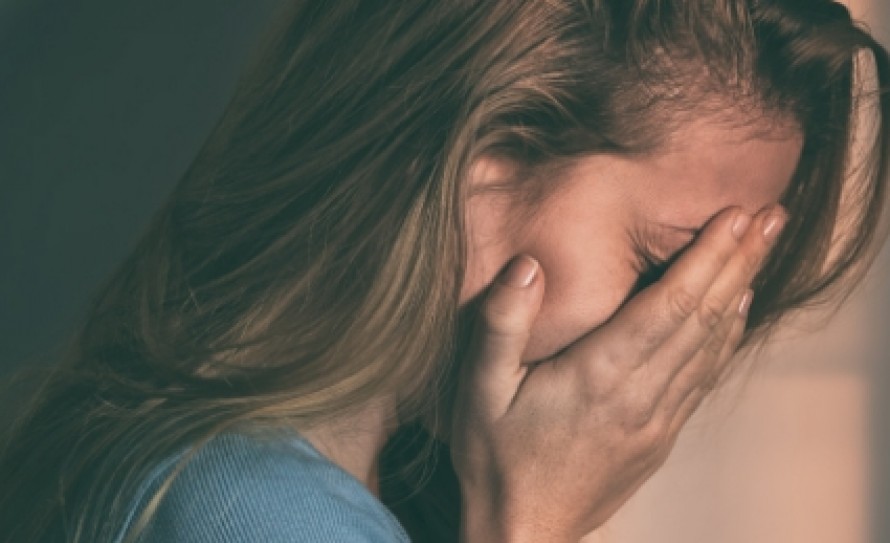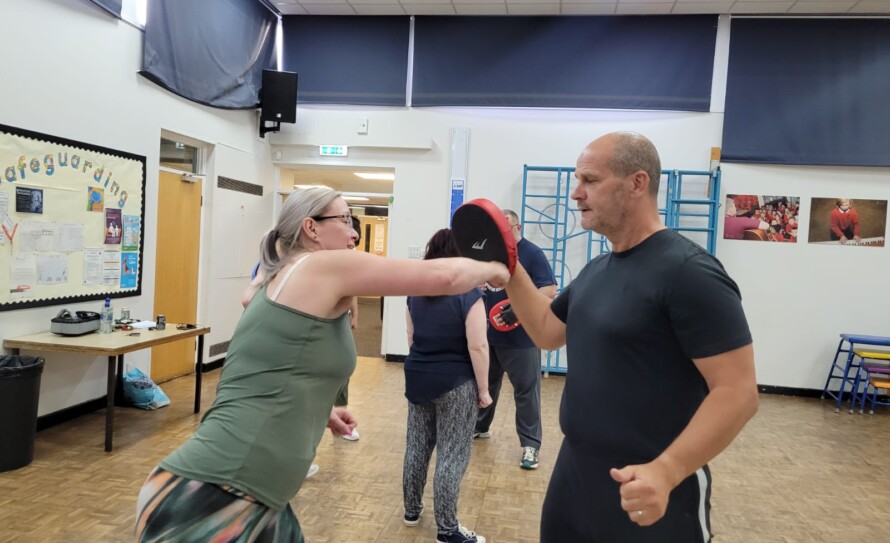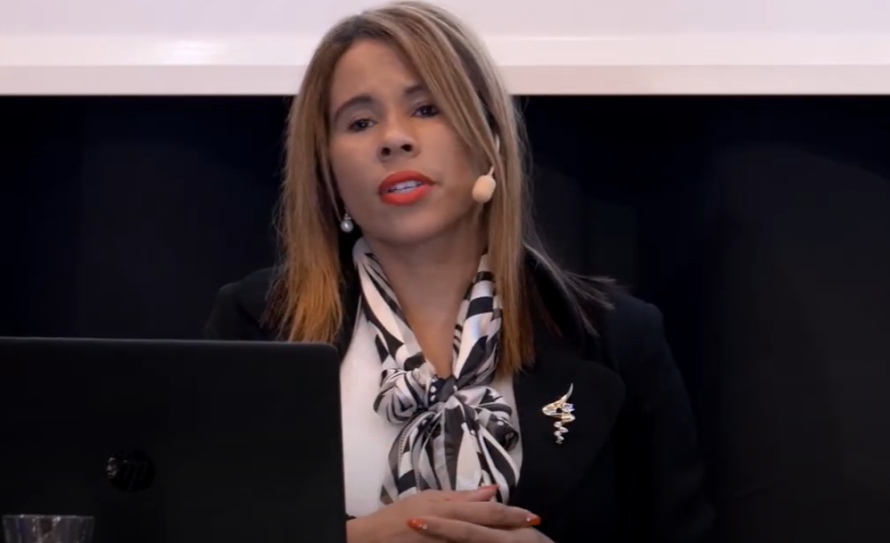Women’s Safety

At the WPS Foundation, our unwavering commitment is to create a society where women can live, work, and thrive without fear. Our focus on women's safety in the UK stems from a deep understanding of the challenges women face and the urgent need to address them. We advocate for a holistic approach that encompasses prevention, support, education, and empowerment.
In the UK, women's safety remains a critical concern. Our foundation is dedicated to raising awareness about the prevalence of gender-based violence and harassment, both in public spaces and behind closed doors. We collaborate with community leaders and law enforcement agencies to try and shape effective policies and regulations that protect women's rights and well-being.
We provide a safe haven for women who have experienced abuse, offering a network of support services that assist them in rebuilding their lives. Our educational initiatives equip women with essential self-defence skills, knowledge about their legal rights, and strategies to navigate potentially dangerous situations. We believe that knowledge is power, and we strive to empower women to assert their rights and reclaim their personal spaces.
Through workshops, initiatives and events, we engage women of all ages and backgrounds in conversations about consent, healthy relationships, and bystander intervention. By fostering a culture of respect and equality, we envision a future where women can thrive without the shadows of insecurity looming over them.

Free Self-Defence Course For Women
Self-defence is not just a skill; it's a game-changer that can bring a significant shift in your life, making you feel more secure and confident. At the Alpha Omega WPS Foundation, we firmly believe that self-defence is not only a right but also a duty and responsibility. That's why we offer a free and inclusive self-defence course that goes beyond physical techniques.
Our course is designed to empower you on multiple levels. It explicitly teaches essential life lessons, character strengths, mindfulness, and resilience strategies, in addition to a variety of self-defence methods. We understand that self-defence encompasses more than just physical techniques; it's about mental fortitude, confidence, and self-worth.
One of the wonderful ladies who attended our inclusive course shared her thoughts: "The self-defence course with Alpha Omega WPS Foundation has changed me! I feel equipped and worthy to be protected. I feel empowered and safer with my new skills."
Our course transcends boundaries as incredible women from diverse backgrounds – British, Polish, Nigerian, Turkish, and more – come together to grow and be equipped and empowered by our supportive trainers.
Self-defence is an essential life skill. Your safety is a priority, and every woman deserves to know how to defend herself when danger strikes. Beyond personal safety, learning self-defence skills offers benefits that extend far beyond protecting yourself physically.

Honour Based Killing and Female Genital Mutilation
We understand the importance of addressing sensitive and critical issues that affect women's lives globally. Honour-Based Killing and Female Genital Mutilation are two such topics that demand our attention and concerted efforts.
Honour-Based Killing is a tragic and deeply concerning phenomenon rooted in cultural beliefs that places the lives of women at risk. We believe in shedding light on this issue, raising awareness, and advocating for change to protect women from this form of violence.
Female Genital Mutilation is another practice that violates the rights and well-being of women and girls. We are committed to ending this harmful tradition by providing education, support, and resources to affected communities.
Our mission is to create a safer and more equitable world for women by addressing these challenging topics with compassion, empathy, and action. Together, we can work towards eliminating these harmful practices and ensuring a brighter future for all women.
Following the first conviction for female genital mutilation in the UK Angie Marriott, a health and social care trainer with expertise in the area, dispels some commonly held myths about the practice.
FGM: Dispelling the Myths
Whilst this devastating practice has been illegal in the UK since the mid-1980s, women and children are still at significant risk. FGM ‘parties and gatherings’ continue to take place in the UK where girls are cut.
Statistics suggest there are 11 cases of FGM taking place daily in the UK. Between 2015 and 2017, 15,000 patients with FGM were treated in the NHS, and it was recently reported that the number of child victims of FGM, and those at risk, has more than doubled in a year in England and Wales.
Many cases remain unreported, which means these statistics are very likely to be higher, demonstrating the prevalence of this cruel practice.
Social workers play a key role in promoting a collaborative partnership approach to managing and protecting girls from FGM, and are increasingly dealing with this dangerous practice.
They are well placed to spot signs and symptoms that FGM has occurred. Frequency of passing urine, complaints of abdominal pain, a child being withdrawn or angry can be key signs that FGM has been carried out. Furthermore, social workers also play a crucial role in identifying children who are at risk, or go missing and do not return after the school holidays.
FGM is practiced for cultural and traditional reasons. It is carried out as part of a celebration of a passage of Rite (to womanhood).
A fundamental difficulty for health and social care professionals are the cultural and language barriers and fear of being labelled racist by practising communities. Where language barriers exist, social workers must use recognised interpreters and never use family members or people from the community that may place girls in danger. They must also use sensitive language.
Additionally, a significant issue for social workers is the lack of trust and confidence that practising communities have with statutory agencies. Working in partnership with black and minority ethnic (BME) groups who possess expertise and knowledge will assist statutory agencies in engaging positively with communities. Understanding the views and perceptions of practising communities is essential. Remember, the perpetrator of FGM is usually also an FGM survivor and a sensitive approach is important. NHS England recommends that all FGM survivors should undergo psychological support. Social workers must therefore be aware of FGM physical and psychological services that are available and the referral process for survivors.
Social workers play a strategic role in helping to tackle the issue and must be knowledgeable about FGM law. The Serious Crime Act compels all health and social care professionals to report all disclosures of FGM in a girl under 18 years of age to the police. However, reporting FGM to the police under the Serious Crime Act (SCA), is still not well understood and many social workers remain unaware about invoking and policing FGM protection orders.
Following an FGM protection order, local authorities must work with the victim and other support services to ensure the highest level of protection. Breach carries a custodial sentence of up to five years.
Under the UK FGM Act 2003, it is illegal to take a girl aboard to have FGM performed. An FGM Protection Order can be used to protect a girl from being taken out of the UK to have FGM performed and also protects a girl who is at risk in the UK.
FGM Protection Orders can be applied for by the person who is to be protected by the order, a relevant third party, or any other person with the permission of the court.
The first prosecution for FGM in the UK shows criminal conviction is possible. It is a reminder that FGM is unlawful in this country and there is a mandatory duty for health and social care professionals to report it to the police if a child is affected.
FGM practising communities I work with have not see UK law as a deterrent. Perpetrators are well known to do their upmost to ensure that the practice remains secret and underground. Furthermore, speaking out about FGM is a taboo within practising communities and this may pose problems when interviewing women or girls affected. Children will not report parents, and a major obstacle to prosecution is proving where FGM took place, in the UK or abroad.
Partnership working is vital. No one agency will solve FGM. As an example, annually I take part in Operation Limelight at Stansted Airport with Essex Police and UK Border Force. Social workers joined the latest event and it was a pleasure to provide training as part of the operational briefing. It is a partner approach to tackling FGM by raising awareness during what we know as the “cutting season” where perpetrators take girls aboard to be cut.
It is not just about raising awareness to the public, it is also about encouraging people to report any concerns to the police. Such examples of good practice have yielded excellent results and should be mirrored across the sector to share learning.
FGM is a complex multifaceted issue to manage and a joint response is crucial. Social workers play a key role in the coordinated response to safeguarding girls following disclosure or concerns of FGM.
FGM results in long term physical and psychological problems. It is a form of abuse, and a risk to the lives of thousands of women and children.
There are many serious health consequences and complications from severe pain, swelling, excessive bleeding, and infection to infertility and death in some instances. It is a very dangerous practice.
I would urge all social workers to ensure they are aware of their mandatory duties to report FGM in under 18s to the police. In addition, they should be fully aware of what is required of them to ensure that they meet the necessary requirements to safeguard and provide a person-centred approach to managing FGM in line with statutory guidance and legislation.
If we are serious in our duty to protect girls from the abuse of FGM, education, training and empowerment is essential for social workers who manage the risks and safeguarding aspect of FGM to fill the existing knowledge gaps and help tackle this growing issue.
Over the past four years I have delivered training to over 1,500 professionals. Specialist training of this type is invaluable and greatly increases awareness as it allows participants to probe and scrutinise sensitive issues. This inevitably will help them to overcome cultural barriers and fears of racism managing safeguarding risks and disclosure, to protect girls.
It’s important that training is conducted face-to-face and not online, a view supported in a report by Her Majesty’s Inspectorate Constabulary, the police watchdog that conducted the first ever inspection of policing Honour Based Violence, Forced Marriage and FGM throughout 43 police forces.
